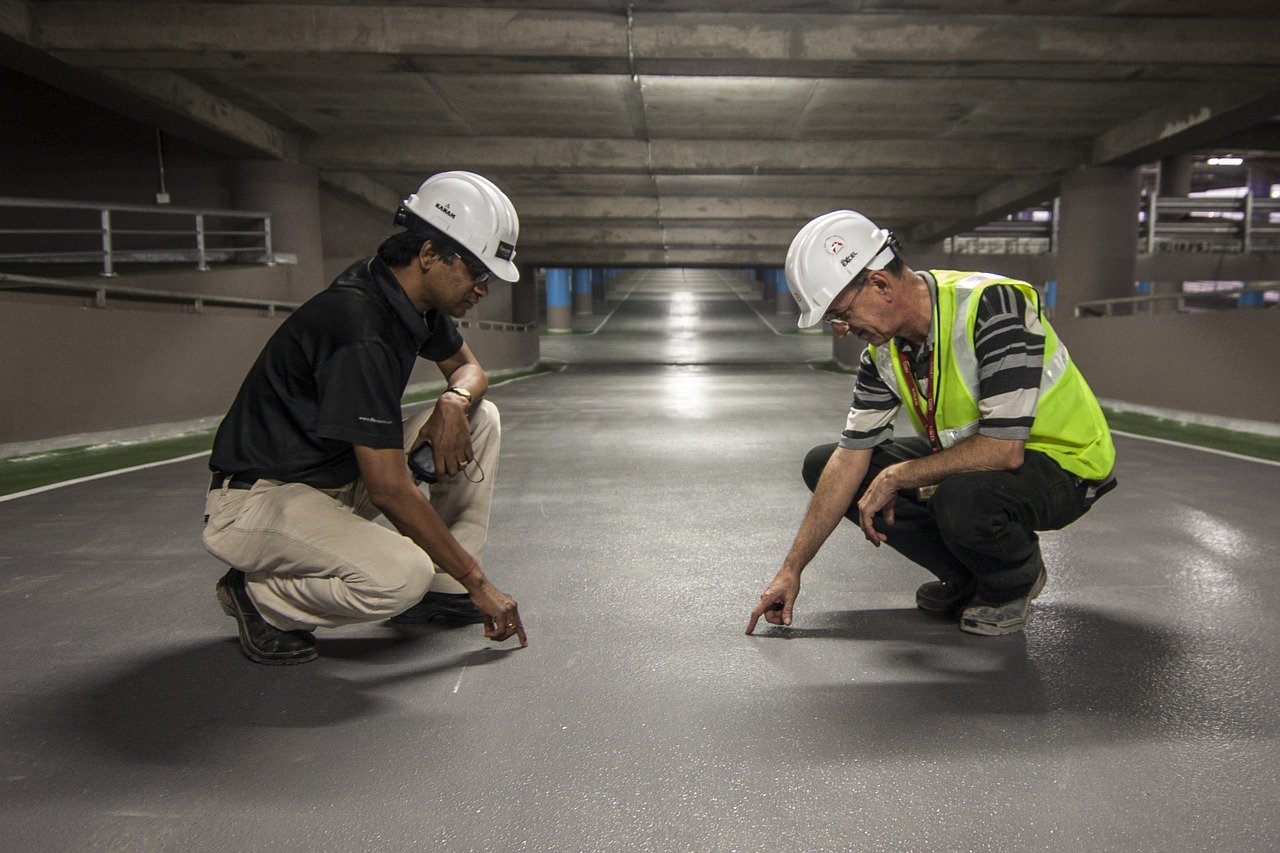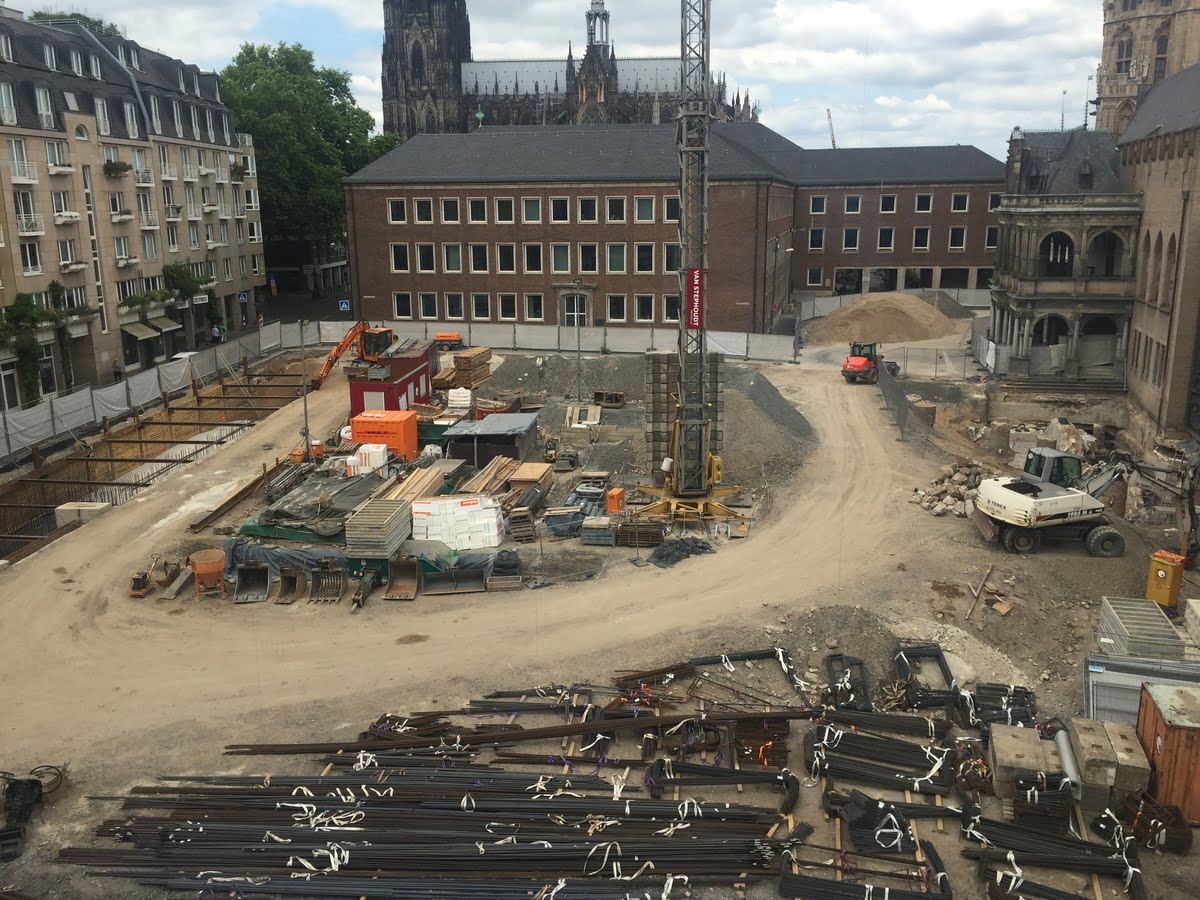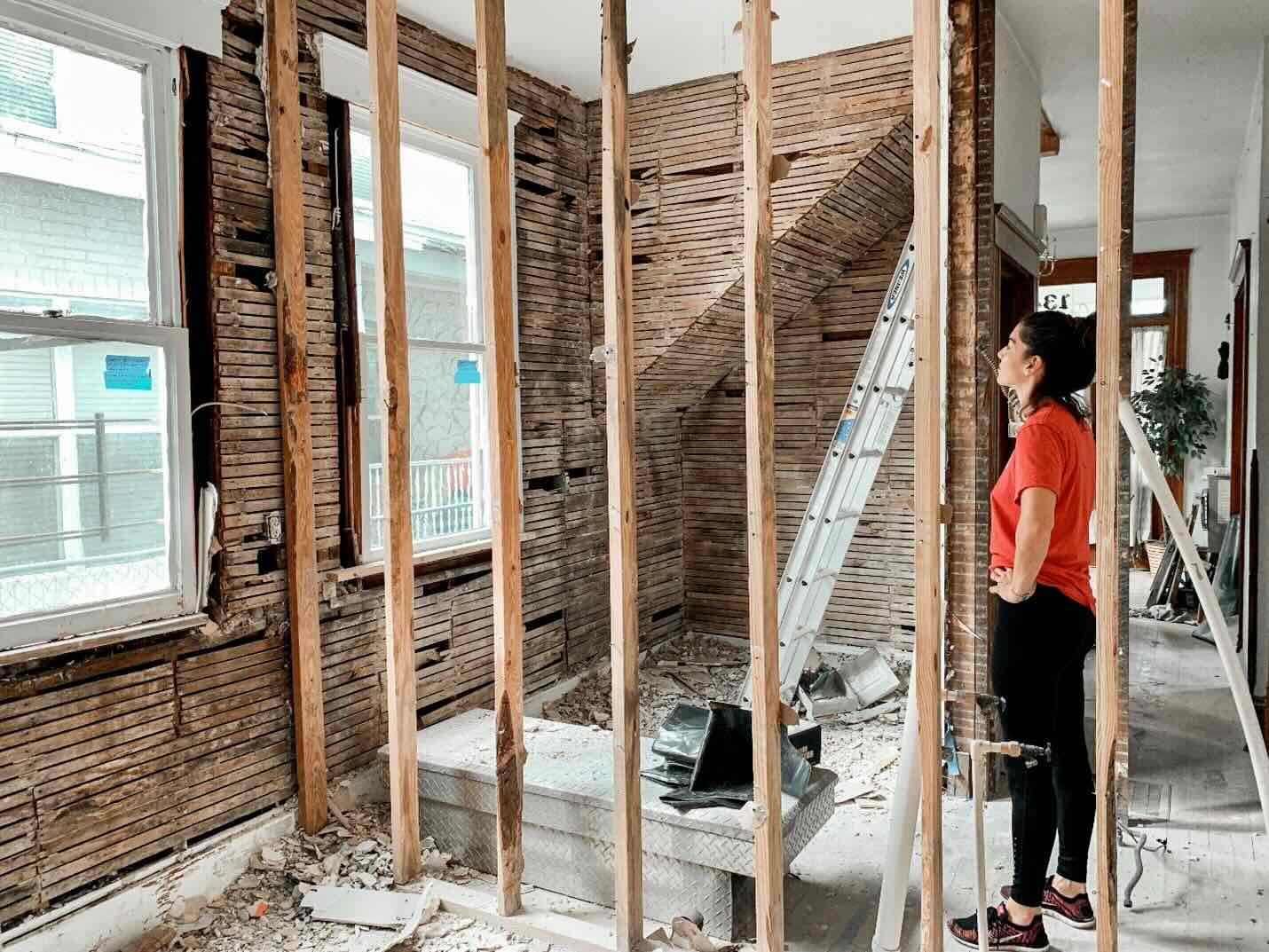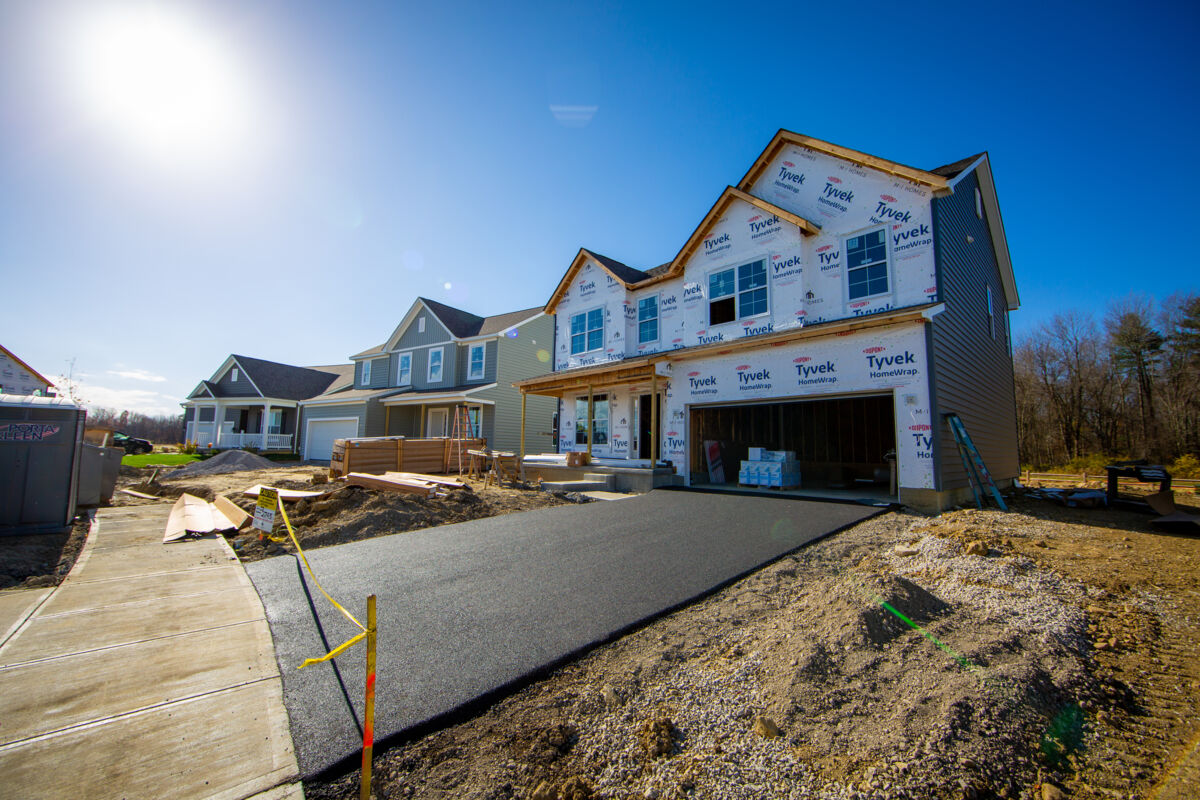Home>diy>Building & Construction>What Is A Commissioning Agent In Construction


Building & Construction
What Is A Commissioning Agent In Construction
Modified: January 6, 2024
A commissioning agent in construction plays a crucial role in ensuring that building construction projects are successful. Learn more about their responsibilities and importance in the industry.
(Many of the links in this article redirect to a specific reviewed product. Your purchase of these products through affiliate links helps to generate commission for Storables.com, at no extra cost. Learn more)
Introduction
Welcome to the world of construction, where solid foundations are laid, structures rise towards the sky, and dreams turn into reality. In the ever-evolving field of construction, ensuring the seamless integration and functionality of building systems is crucial to the success of any project. This is where a commissioning agent comes into play.
A commissioning agent, also known as a building commissioning professional, plays a pivotal role in the construction industry. They act as the bridge between the design and construction phases, ensuring that buildings are delivered with optimum performance, efficiency, and functionality.
In this article, we will explore the role and responsibilities of a commissioning agent, the benefits of hiring one, the commissioning process, and the importance of commissioning in construction projects.
Key Takeaways:
- Commissioning agents play a crucial role in ensuring the success of construction projects by verifying, documenting, and optimizing building systems. Their expertise leads to high-quality, energy-efficient, and functional structures.
- The future of commissioning in construction brings exciting trends and advancements, including the use of BIM, IoT, and data analytics. Commissioning agents must adapt to these changes to meet the evolving needs of the industry.
Read more: What Is Pre-Commissioning In Construction
Definition of a Commissioning Agent
A commissioning agent is a skilled professional who oversees the commissioning process of a construction project. Commissioning is the quality assurance process of verifying, documenting, and ensuring that building systems are designed, installed, tested, operated, and maintained according to the owner’s requirements.
The role of a commissioning agent is to act as an independent third party, working in the best interest of the client, to ensure that the building is constructed to meet the highest standards of performance, energy efficiency, and sustainability. They collaborate with all stakeholders involved, including architects, engineers, contractors, and facility managers, throughout the entire project duration.
Roles and Responsibilities
A commissioning agent has a wide range of roles and responsibilities. Here are some of the key tasks they perform:
- Evaluating the project requirements and developing a commissioning plan.
- Reviewing design documents to identify any potential issues or gaps.
- Conducting regular site inspections to ensure adherence to design and quality standards.
- Coordinating with contractors and subcontractors to ensure proper installation and integration of building systems.
- Overseeing the commissioning process, including functional performance testing, system balancing, and documentation.
- Identifying and resolving any deficiencies or operational issues during the commissioning phase.
- Providing training to building owners and operators on the proper operation and maintenance of systems.
- Preparing comprehensive reports and documentation to serve as a reference for future operations and maintenance.
By fulfilling these roles and responsibilities, a commissioning agent helps to minimize risks, optimize building performance, reduce energy consumption, and enhance occupant comfort and satisfaction.
Key Takeaways:
- Commissioning agents play a crucial role in ensuring the success of construction projects by verifying, documenting, and optimizing building systems. Their expertise leads to high-quality, energy-efficient, and functional structures.
- The future of commissioning in construction brings exciting trends and advancements, including the use of BIM, IoT, and data analytics. Commissioning agents must adapt to these changes to meet the evolving needs of the industry.
Read more: What Is Pre-Commissioning In Construction
Definition of a Commissioning Agent
A commissioning agent, also known as a building commissioning professional, is a highly specialized individual who ensures that construction projects meet the highest standards of performance, functionality, and efficiency. They act as independent consultants, representing the interests of the building owner, and collaborate closely with architects, engineers, contractors, and other stakeholders to ensure the successful completion of a project.
The primary objective of a commissioning agent is to verify and document that all building systems are designed, installed, tested, operated, and maintained according to the owner’s requirements and industry standards. This involves conducting thorough inspections, testing the functionality of systems, and identifying and resolving any deficiencies or operational issues that may arise during the construction process.
Commissioning agents play a critical role in improving the quality of construction projects. They help to prevent costly errors and delays by ensuring that systems are properly integrated and functioning as intended. By overseeing the commissioning process, they provide a level of confidence to building owners that their investment will deliver the expected results in terms of performance, energy efficiency, and occupant comfort.
Commissioning agents are involved in the project from the early design stages through completion and beyond. They review design documents, such as plans and specifications, to identify potential issues or gaps that could affect the performance of building systems. They also develop a comprehensive commissioning plan that outlines the specific steps and procedures required to successfully commission the project.
During the construction phase, commissioning agents conduct site visits to monitor progress and ensure that work is being executed according to the approved design. They verify that systems are installed correctly and operate smoothly, performing various tests and inspections to confirm their functionality.
One of the key responsibilities of a commissioning agent is to identify and address any performance issues or deficiencies that may arise during the commissioning process. This includes conducting functional performance tests on individual building systems, such as HVAC, electrical, plumbing, and fire protection systems, to ensure that they meet the required performance standards.
Additionally, commissioning agents play a vital role in training building operators and occupants on the proper operation and maintenance of systems. They provide detailed documentation, including operation manuals and maintenance schedules, to enable building owners to effectively manage the systems and ensure their long-term optimal performance.
In summary, a commissioning agent is a skilled professional who ensures that construction projects meet the highest standards of performance and functionality. They play a crucial role in the design, construction, and operation of buildings, working closely with stakeholders to ensure the successful completion of projects that are efficient, sustainable, and provide optimal comfort for occupants.
Roles and Responsibilities
As a commissioning agent, one assumes a range of crucial roles and responsibilities throughout the construction process. These roles are essential in ensuring that the building systems are designed, installed, and operating at their full potential. Here are some of the key tasks and responsibilities of a commissioning agent:
1. Developing the Commissioning Plan: One of the primary responsibilities of a commissioning agent is to develop a comprehensive commissioning plan for the project. This plan outlines the specific procedures and steps needed to successfully commission the building systems. It includes identifying performance metrics, setting goals, and establishing a timeline for testing and evaluating each system.
2. Reviewing Design Documents: Commissioning agents meticulously review the design documents, including architectural drawings, engineering specifications, and equipment schedules. They carefully assess the plans to identify any design issues, potential conflicts, or gaps that could affect system performance or integration.
3. Conducting Site Inspections: Commissioning agents regularly visit the construction site to conduct inspections throughout the project duration. They verify that the installation of building systems adheres to the approved design and specifications. Through these inspections, they ensure that contractors and subcontractors are following the proper installation techniques and meeting quality standards.
4. Functional Performance Testing: Commissioning agents are responsible for conducting functional performance tests on all the building systems. These tests evaluate the performance and operation of each system, such as HVAC, electrical, plumbing, and fire protection systems, to ensure they meet the intended design criteria. Any deficiencies or performance issues discovered during testing are logged and addressed accordingly.
5. Cross-System Integration: Commissioning agents pay significant attention to the integration of various building systems. They verify that individual systems are operating harmoniously and as intended when integrated with other systems. This ensures optimal performance, energy efficiency, and occupant comfort.
6. Identifying and Resolving Issues: Commissioning agents are responsible for identifying and resolving any deficiencies or operational issues that arise during the commissioning process. They work closely with contractors, engineers, and vendors to address these issues promptly and ensure that the systems perform according to the owner’s requirements and industry standards.
7. Documentation and Reporting: Commissioning agents prepare detailed reports documenting the commissioning process and any issues encountered. These reports provide a record of all the tests conducted, the results obtained, and any necessary corrective actions taken. They serve as a valuable resource for building owners and operators in managing and maintaining the systems post-construction.
8. Training and Handover: Commissioning agents provide training to the building owners, operators, and maintenance staff on the operation and maintenance of various systems. They ensure that the building owners have a thorough understanding of the systems installed and provide them with the necessary documentation and resources to operate the building efficiently.
By undertaking these roles and responsibilities, commissioning agents contribute to the successful completion of construction projects, ensuring that buildings are constructed to meet the highest standards of performance, functionality, and sustainability.
Read more: What Does Commissioning Mean In Construction
Benefits of Hiring a Commissioning Agent
When embarking on a construction project, whether it’s a new building or a renovation, hiring a commissioning agent can bring numerous benefits to the table. Let’s explore some of the key advantages of including a commissioning agent on your project team:
1. Ensuring Optimal Performance: A commissioning agent plays a vital role in ensuring that all building systems, from HVAC to electrical and plumbing, perform at their best. They conduct thorough inspections and functional performance tests to verify that systems are installed correctly, calibrated properly, and functioning as specified. This attention to detail helps to identify and address any potential issues before they become major problems.
2. Energy Efficiency: By meticulously verifying and optimizing the performance of building systems, commissioning agents contribute to increased energy efficiency. Through their expertise, they ensure that systems are properly designed, installed, and operate efficiently, resulting in reduced energy consumption and cost savings over the long term.
3. Cost Savings: Investing in a commissioning agent can lead to significant cost savings throughout the lifecycle of a building. By avoiding costly mistakes or oversights during the construction process, commissioning agents help to prevent expensive issues that could arise later. Additionally, by maximizing energy efficiency, operational costs can be reduced, further contributing to long-term savings.
4. Improved Indoor Air Quality: A commissioning agent ensures that ventilation and air conditioning systems are designed and installed to provide optimal indoor air quality. They verify that air exchanges, humidity levels, and filtration systems meet industry standards, creating a healthier and more comfortable environment for occupants.
5. Enhanced Occupant Comfort: The role of a commissioning agent extends beyond just functionality; they also focus on occupant comfort. By testing and fine-tuning systems, they ensure that temperatures, airflows, and lighting levels are in line with the desired comfort requirements. This leads to a higher level of satisfaction among occupants, improving their overall experience within the building.
6. Smooth Systems Integration: Building projects involve the integration of multiple systems and technologies. Commissioning agents play a crucial role in ensuring that these systems work together seamlessly. By coordinating and verifying the integration of various systems, they prevent conflicts or performance issues that may arise from incompatible components or implementation errors.
7. Quality Assurance & Risk Mitigation: Commissioning agents provide quality assurance by conducting thorough inspections, tests, and documentation throughout the construction process. Their independent review and verification help to identify and resolve any potential issues before they impact the overall quality of the project. This mitigates risks and ensures that the final outcome meets the owner’s requirements and expectations.
8. Documentation & Knowledge Transfer: Commissioning agents compile comprehensive documentation during the commissioning process, capturing all tests, results, and corrective actions taken. This documentation serves as a valuable resource for building owners and operators, providing guidance on proper operation, maintenance, and troubleshooting. It also facilitates knowledge transfer from the commissioning agent to the building’s stakeholders, ensuring that the building’s systems are effectively managed for long-term performance.
Overall, hiring a commissioning agent brings numerous benefits to a construction project, including improved performance, energy efficiency, cost savings, and occupant comfort. Their expertise and attention to detail contribute to a successful and well-functioning building that meets owner expectations and industry standards.
A commissioning agent in construction is responsible for ensuring that building systems are installed, tested, and operate according to the owner’s requirements. They play a crucial role in ensuring the quality and performance of the building systems.
Commissioning Process in Construction
The commissioning process in construction is a systematic and comprehensive approach to ensure that building systems operate as intended and meet the owner’s requirements. This process typically consists of several key stages, each with specific activities and goals. Let’s dive into the commissioning process in construction:
1. Pre-Design Phase: This phase sets the foundation for successful commissioning. It involves establishing the project goals, determining performance criteria, and defining the roles and responsibilities of the commissioning team. The team typically includes the owner, design professionals, contractors, and the commissioning agent.
2. Design Phase: During this phase, the commissioning agent reviews the design documents, including plans, specifications, and equipment schedules. They identify any potential issues or gaps that need to be addressed to ensure optimal system installation and performance. This phase ensures that the design aligns with the owner’s requirements and industry standards.
3. Construction Phase: In this phase, the commissioning agent conducts regular site visits and inspections to oversee the construction process. They verify that building systems are installed correctly, calibrated properly, and integrated seamlessly. They work closely with contractors and subcontractors to address any issues or deficiencies that arise during this phase. The agent also performs functional performance tests to ensure that systems meet the approved design criteria.
4. Systems Testing & Verification: Once construction is complete, the commissioning agent carries out comprehensive testing and verification of each building system. This includes functionality testing, performance testing, and system integration testing. The goal is to ensure that each system operates as intended and in harmony with other systems in the building.
5. Documentation & Reporting: Throughout the commissioning process, the agent creates detailed documentation, including test procedures, test results, and recommendations for any necessary adjustments or improvements. They compile this information into a comprehensive commissioning report that serves as a reference for future operation, maintenance, and troubleshooting.
6. Training & Occupant Support: The commissioning agent provides training to the building owners, operators, and maintenance staff on the proper operation and maintenance of the systems. They ensure that the occupants have a clear understanding of how to utilize the building’s systems to achieve optimal performance and comfort. The agent also provides ongoing support during the initial occupancy period to address any questions or issues that arise.
7. Warranty Period Support: Even after the project is completed, the commissioning agent continues to provide support during the warranty period. They monitor performance, address any remaining issues, and help coordinate warranty service requests. This ensures that the building systems continue to operate effectively and that any warranty-related matters are resolved promptly.
The commissioning process in construction ensures that building systems are thoroughly tested, verified, and optimized for performance and functionality. It provides a systematic approach to uncovering and addressing potential issues before they impact the building’s operation and occupant comfort. By following this process, construction projects can meet the highest standards of quality, energy efficiency, and owner satisfaction.
Importance of Commissioning in Construction Projects
Commissioning plays a crucial role in ensuring the success of construction projects. It is a comprehensive process that verifies, documents, and ensures that building systems are installed, tested, and operated according to the owner’s requirements and industry standards. Let’s explore the importance of commissioning in construction projects:
1. Quality Assurance: Commissioning acts as a quality assurance measure to ensure that building systems are designed, installed, and operated correctly. It verifies that construction work meets the approved design and specifications, helping to avoid costly errors and inconsistencies. By identifying deficiencies and resolving them before project completion, commissioning ensures that the final product is of the highest quality.
2. System Optimization: Commissioning focuses on optimizing the performance of building systems. It ensures that systems are calibrated, integrated, and functioning as intended, leading to improved energy efficiency, occupant comfort, and system longevity. By fine-tuning, adjusting, and balancing systems, commissioning maximizes their efficiency and effectiveness, resulting in operational cost savings over the life of the building.
3. Risk Mitigation: Through comprehensive testing and verification, commissioning helps to identify potential risks and issues before they become critical problems. By addressing these issues during the construction process, commissioning minimizes the likelihood of system failures or subpar performance. This proactive approach reduces future maintenance and repair costs and enhances the overall reliability of the building systems.
4. Energy Efficiency: Commissioning plays a vital role in achieving energy-efficient buildings. By ensuring that systems are properly designed, installed, and operated, commissioning minimizes energy waste and inefficiencies. It identifies opportunities for energy-saving measures, such as optimizing HVAC controls and improving lighting systems. Implementing these measures results in reduced energy consumption and lower operating costs, as well as aligning with sustainability goals.
5. Occupant Comfort and Satisfaction: Commissioning agents focus not only on the functionality of building systems but also on the comfort and satisfaction of the occupants. Through proper system calibration and optimization, commissioning improves indoor air quality, thermal comfort, and lighting levels. Occupants benefit from a well-functioning and comfortable environment, improving productivity, and overall satisfaction.
6. Compliance with Codes and Standards: Commissioning ensures that construction projects meet the necessary building codes, regulations, and industry standards. By thoroughly testing and documenting system performance, commissioning provides evidence of compliance. This is particularly important for critical systems, such as fire protection and life safety, which require rigorous adherence to regulations to ensure the safety of occupants.
7. Long-Term Benefits: The benefits of commissioning extend beyond the construction phase. Through the detailed documentation, training, and ongoing support provided by commissioning agents, building owners and operators are equipped with the knowledge and resources to effectively manage and maintain the systems. This leads to improved system longevity, reduced maintenance costs, and optimized operational performance throughout the life of the building.
In summary, commissioning is a vital process in construction projects that ensures quality, efficiency, and long-term performance. By validating and optimizing building systems, commissioning contributes to energy savings, occupant comfort, risk reduction, and overall project success. Incorporating commissioning into construction projects is an investment that pays off in terms of improved performance, reduced operational costs, and increased occupant satisfaction.
Qualifications and Skills of a Commissioning Agent
A commissioning agent is a highly skilled professional who plays a crucial role in ensuring the successful completion of construction projects. To excel in this role, a commissioning agent should possess a combination of qualifications, knowledge, and skills. Let’s explore the qualifications and skills required to be an effective commissioning agent:
1. Technical Expertise: A commissioning agent should have a strong technical background and in-depth knowledge of building systems and construction processes. This includes an understanding of HVAC, electrical, plumbing, fire protection, and other mechanical systems commonly found in buildings. They should be familiar with design codes, industry standards, and best practices related to commissioning.
2. Engineering or Architectural Background: A commissioning agent often holds a degree in engineering, architecture, or a related field. This educational background provides them with the foundational knowledge necessary to understand the complexities of building systems and effectively evaluate design documents and construction processes.
3. Commissioning Certification: Many commissioning agents pursue professional certifications, such as the Certified Commissioning Professional (CCP) or the Building Commissioning Certification (BCC), to validate their expertise and enhance their credibility. These certifications demonstrate a commitment to ongoing professional development and an up-to-date knowledge of industry standards and best practices.
4. Problem-Solving and Analytical Skills: Commissioning agents need strong problem-solving and analytical skills to identify issues, assess complex systems, and recommend appropriate solutions. They should be able to analyze data, interpret test results, and make informed decisions to optimize system performance.
5. Communication and Collaboration: Effective communication and collaboration skills are essential for commissioning agents. They must be able to communicate effectively with various stakeholders, including architects, engineers, contractors, and building owners. Strong interpersonal skills enable them to build relationships, resolve conflicts, and work collaboratively to achieve project goals.
6. Attention to Detail: Commissioning agents must possess a keen eye for detail to identify potential design flaws, installation errors, or operational issues. They should be methodical and thorough in their approach to inspections, tests, and documentation, ensuring that nothing is overlooked during the commissioning process.
7. Project Management Skills: Commissioning agents often oversee multiple projects simultaneously and must possess strong project management skills. They should be skilled in planning, organizing, and coordinating tasks, as well as managing timelines and resources effectively.
8. Knowledge of Energy Efficiency and Sustainability: Understanding energy efficiency principles and sustainability practices is essential for commissioning agents. They should stay updated on the latest technologies and strategies for improving energy performance, reducing environmental impact, and achieving sustainability goals.
9. Continuous Learning: Given the evolving nature of the construction industry, commissioning agents must have a commitment to continuous learning. They should stay abreast of new technologies, building codes, and industry trends through professional development opportunities, conferences, and industry publications.
In summary, a commissioning agent should possess the qualifications and skills necessary to effectively manage and execute the commissioning process. Technical expertise, problem-solving skills, strong communication, and collaboration abilities, attention to detail, project management skills, and a commitment to continuous learning are all essential attributes of a competent commissioning agent.
Challenges Faced by Commissioning Agents in Construction
Commissioning agents play a critical role in ensuring the successful completion of construction projects, but they also face various challenges along the way. Understanding and addressing these challenges is crucial to executing the commissioning process effectively. Let’s explore some of the common challenges faced by commissioning agents:
1. Limited Involvement in the Early Design Phase: Commissioning agents often face the challenge of being brought into the project late in the design process. This limited involvement can lead to missed opportunities for optimizing system performance, identifying potential issues, and recommending design changes that could result in better outcomes.
2. Lack of Collaboration and Communication: Effective collaboration and communication are vital for commissioning success. However, commissioning agents may encounter challenges in establishing open lines of communication and fostering collaboration among different project stakeholders. This can lead to delays in receiving necessary information, changes in project scope, or conflicts that may impact the commissioning process.
3. Balancing Cost and Quality: Commissioning agents must find a balance between achieving the highest quality outcomes and managing project costs. This can be challenging when facing tight project budgets or unrealistic expectations from project stakeholders. They must navigate these constraints while ensuring that the commissioning process does not compromise the overall quality and performance of the building systems.
4. Changing Project Requirements: Construction projects often undergo changes throughout their lifecycle, whether due to evolving owner requirements, design modifications, or unforeseen circumstances. Commissioning agents must adapt to these changes and adjust their plans and strategies accordingly. However, these changes can introduce complexities and may require additional time and resources to effectively implement commissioning activities.
5. Limited Technical Expertise of Team Members: Commissioning agents may face challenges when working with team members who have limited technical expertise or understanding of the commissioning process. This can hinder effective communication, coordination, and decision-making, which are crucial for successful commissioning. Addressing these challenges may require additional training or education for team members to ensure everyone is aligned and working towards the same goals.
6. Integration Challenges: Building systems are interconnected and must work together seamlessly for optimal performance. However, commissioning agents may encounter challenges in verifying and resolving technical issues related to system integration. Identifying and addressing these challenges require collaboration with multiple trades, contractors, and vendors involved in the construction process.
7. Documentation and Knowledge Transfer: Commissioning agents face the task of creating comprehensive documentation and reports throughout the commissioning process. This documentation serves as a valuable resource for building owners and operators. However, ensuring that the documentation is accurate, thorough, and easily understandable can be challenging, especially when managing multiple projects simultaneously and dealing with competing demands.
8. Time Constraints: Construction projects often operate on tight schedules, and commissioning activities must be integrated within these timelines. Commissioning agents may face challenges in completing all necessary activities within the available timeframe. It is important to prioritize key commissioning tasks and work closely with project stakeholders to optimize the commissioning schedule without compromising the quality of the process.
Despite these challenges, commissioning agents play a crucial role in ensuring the successful completion of construction projects. By proactively addressing these challenges and finding solutions, commissioning agents can overcome obstacles and deliver optimal performance and functionality in building systems.
Future Trends in Commissioning in Construction
The field of commissioning in construction is continuously evolving, driven by advancements in technology, environmental concerns, and client expectations. As the construction industry embraces innovation and sustainability, several future trends are emerging in commissioning. Let’s explore some of these trends:
1. Building Information Modeling (BIM): BIM is a digital representation of the physical and functional characteristics of a building. It provides a collaborative platform for integrating design, construction, and operation information. In the future, commissioning agents are likely to utilize BIM to simulate system performance, detect clashes, and optimize design solutions. BIM can facilitate more effective collaboration between project stakeholders and streamline the commissioning process.
2. IoT and Smart Buildings: The Internet of Things (IoT) is revolutionizing the way building systems operate and interact with each other. In the future, commissioning agents will adapt to working with IoT-enabled devices and systems, including HVAC, lighting, and security systems. They will be responsible for verifying the proper integration and functioning of these smart technologies, ensuring that they meet the owner’s requirements and contribute to energy efficiency and occupant comfort.
3. Performance-Based Commissioning: Traditionally, construction commissioning has focused on functional testing of individual systems. However, future trends are shifting towards performance-based commissioning, where the performance of entire buildings or complex systems is evaluated. This approach considers factors like energy efficiency, sustainability goals, occupant comfort, and indoor air quality, providing a more holistic assessment of a building’s performance.
4. Green Building Commissioning: With the growing emphasis on environmental sustainability, commissioning agents will play a crucial role in ensuring that buildings meet green building standards and certifications. They will focus on verifying the implementation of energy-efficient technologies, renewable energy systems, water conservation measures, and other sustainable practices. Commissioning agents will also be responsible for optimizing building performance to meet and maintain green building certifications, such as LEED (Leadership in Energy and Environmental Design) or WELL Building Standard.
5. Data Analytics and Predictive Maintenance: The increasing availability of data from building systems and sensors provides an opportunity for commissioning agents to use data analytics and predictive maintenance techniques. By analyzing data, commissioning agents can identify trends, predict maintenance needs, and optimize system performance. This proactive approach allows for early detection of potential issues and the implementation of preventative measures, reducing downtime, and improving the overall reliability of building systems.
6. Continuous Commissioning: In the future, commissioning will become a continuous process rather than a one-time event. Building systems will be continually monitored and optimized to maintain their performance over time. Continuous commissioning will involve real-time data collection, analysis, and adjustments to ensure that systems operate at their highest efficiency levels. This ongoing monitoring and optimization will help to address performance degradation over time and ensure long-term sustainability.
7. Integration of Commissioning with Facility Management: To optimize building performance and minimize operational costs, the integration of commissioning with facility management will become more prominent. Commissioning agents will work closely with facility management teams to provide ongoing support, monitor and evaluate system performance, and implement improvements. This collaboration will ensure that the building’s systems continue to operate efficiently throughout its lifecycle.
As the construction industry becomes more focused on sustainability, energy efficiency, and operational excellence, these future trends in commissioning will drive the industry forward. Commissioning agents will need to adapt to these trends, continually enhance their skills, embrace technological advancements, and align their processes with these evolving industry needs.
Conclusion
In the dynamic world of construction, commissioning agents play a pivotal role in ensuring the success of projects. Their expertise in verifying, documenting, and optimizing building systems is essential in delivering high-quality, energy-efficient, and functional structures. Throughout the commissioning process, these professionals face various challenges, from limited involvement in the early design phase to integrating rapidly evolving technologies.
Despite these challenges, commissioning agents offer numerous benefits to construction projects. They ensure optimal system performance, energy efficiency, and occupant comfort through rigorous testing, verification, and collaboration with project stakeholders. By identifying and addressing issues early in the construction process, commissioning agents mitigate risks, minimize costly errors, and enhance the overall quality of the project.
The future of commissioning in construction brings exciting trends and advancements. Technologies like BIM, IoT, and data analytics will revolutionize the commissioning process, enhancing collaboration, optimizing design solutions, and predicting maintenance needs. Commissioning will move towards a performance-based approach, considering not only individual system functionality but also overall building performance, sustainability, and occupant satisfaction.
Green building commissioning will become increasingly important as the construction industry embraces environmental sustainability. Commissioning agents will play a critical role in verifying the implementation of green technologies and optimizing building performance to meet sustainable building standards.
Continuous commissioning and the integration of commissioning with facility management will ensure that buildings operate at peak performance throughout their lifecycle, minimizing operational costs and maximizing efficiency.
In conclusion, commissioning agents are instrumental in delivering construction projects that meet the highest standards of quality, energy efficiency, and occupant satisfaction. As the industry evolves, commissioning agents must adapt to emerging trends, embrace technological advancements, and continuously enhance their skills to meet the ever-changing needs of the construction industry. By doing so, they contribute to the creation of sustainable, innovative, and well-performing buildings that shape our built environment for the better.
Frequently Asked Questions about What Is A Commissioning Agent In Construction
Was this page helpful?
At Storables.com, we guarantee accurate and reliable information. Our content, validated by Expert Board Contributors, is crafted following stringent Editorial Policies. We're committed to providing you with well-researched, expert-backed insights for all your informational needs.














0 thoughts on “What Is A Commissioning Agent In Construction”